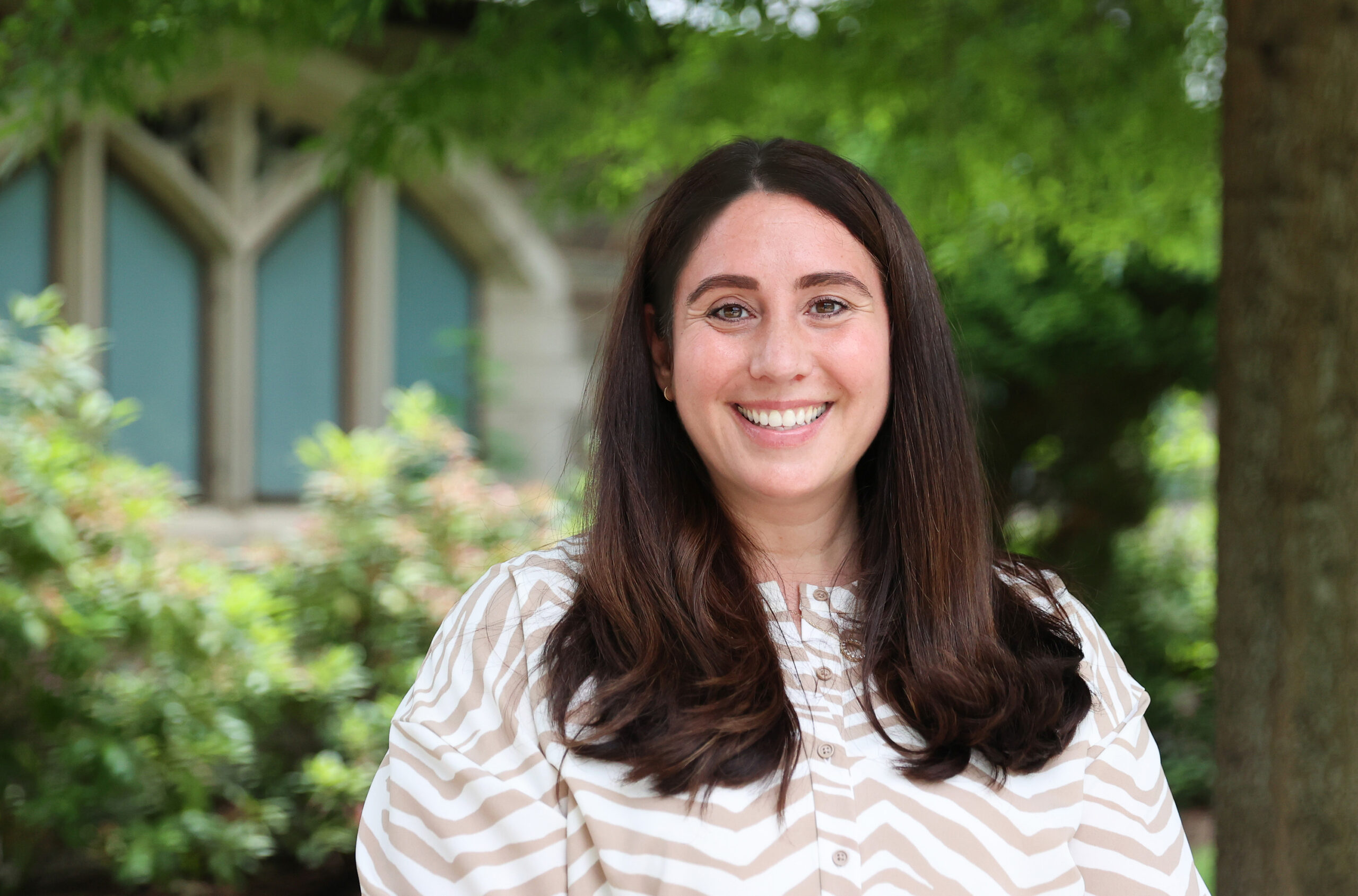The staff at the Summit School in Nyack are experienced in managing and teaching students with special needs in a number of situations that vary from day-to-day and student to student. Glimpses into specific pivot points where students interact with staff paint a picture of a school with so much going on that the goals can sometimes become unclear. To explain how the Summit School in Nyack functions within the state of New York as a last-resort place for students with emotional difficulties, school Principal Deborah Dolan lends her story.
Deborah Dolan came to Summit Nyack the summer after she graduated with a degree in Child Development, Communications, and Media Studies from Tufts University. She served as a 1-1 Aide and a Teaching Assistant. She then earned a master’s degree in social work and worked with students for three years outside of the classroom before deciding to go back to school a final time for a degree in School Administration and Leadership from Stony Brook.
With the multitude of roles Deborah has had at Summit Nyack on both the clinical and teaching sides, she became principal of the school 8 years ago and continues to serve to this day with a deep understanding of each department.
“Summit is, has been, and always will be my life…”
Having worked at the Summit School at Nyack for 16 years now, Deborah believes the school is distinguished in that staff members are supportive of each other in their personal lives and socialize outside of work. And she believes that it’s critically important for students to witness interactions between staff,
“The students know and can see that the staff members care about each other… So much of what we do for our kids is ‘modeling’ for them – modeling how to maintain a relationship, how to have friends, how to care about someone… it gives kids a glimpse into real life.”
Seeing staff communicate with each other, share accomplishments, and solve problems both personal and work-related, students learn the emotional benefits of opening themselves up to others. It is Deborah’s hope that any student coming into the school sees the positive relationships among staff as an encouragement to open themself up because over time the staff will have to get to know them as a person rather than as student alone. Deborah points out that the natural result of working with students with emotional difficulties in a school setting is that their learning needs are important but their individual and emotional humanity is necessary to understand in order to teach them effectively.
The staff is aware that school was never an easy thing for these kids. Staff members try to help students with basic needs and listen to them because, “their feelings matter, their opinions matter, their voice needs to be heard.” The idea is to give students a different experience from public schools by hiring staff who are more willing to listen to students and be attentive to their human needs sometimes outside of the classroom environment.
On day one, Deborah asks students to come to Summit with an open mind and, “with the thought that they’re gonna give this a shot.” Staff does not make any promises that they will change their lives for the better. By the time they are at Nyack, students have already been through so much at other school facilities and don’t want to hear any empty promises or promises that they feel may or may not become fulfilled. Being honest about the process from the start is just one other way the school tries to distinguish itself from others.
A major focus outside of the curriculum is placed on helping students live in the moment and appreciate the moment. Many students come in wanting to rush to get out of school because they are afraid of growing as a person from where they are currently in life. The notion Deborah tries to communicate with students is that you never know where life will take you so it’s best to live in the moment and enjoy. The school offers a long variety of extra-curricular activities, some typical at other schools and others not so much, to make students comfortable where they are.
Regarding curriculum, Deborah notes, “We follow the New York State curriculum so we are a New York State approved school.” Students are able to graduate from the school with a New York State Diploma and a New York State Career Development and Occupational Studies (CDOS) Credential which enables them to be ready to work and shows experience with vocational work.
And when communicating with parents about their student’s progress, Deborah says the best practice is showing actions and results rather than focusing on plans. Onboarding a student is a one-step at a time process, and it’s important to teach parents that some things get a lot worse before they get better, “there are peaks and valleys when improving behavior.”
“I think it’s about respecting responsibility and knowing how big it is and being humble with that responsibility… Relationship building is a process and it doesn’t happen right away. And if you think or expect that it’s going to happen right away then it’s going to feel disingenuous…”
Deborah believes that what makes Summit Nyack work as a school is that it is needed. The approach of using therapy in a school setting provides students with the means to thrive beyond the person they may be with the limited resources a New York State public school has. Deborah says she thinks it is unfortunate you have to fail in the eyes of the state before you can switch to Summit School. She believes waiting for ‘failure’ and having to undergo the process of proving to the state that you cannot be successful in a place without the resources available at Summit is difficult for kids and families. And for students who are ready to come to Nyack because they have failed to improve in all other educational settings, Deborah says it’s okay to accept who you are and, “…not try to erase it.” Instead, “Draw a line in the sand and start today.”
She encourages students to acknowledge how things have gone so far and work with staff to get a degree and become their best selves. The goal is to prepare these students for real-life which may include living with any conditions they may have.
Deborah builds relationships with new students by giving them the opportunity to ease into life on campus. The process includes giving students the first two weeks to acclimate by doing activities they want to do like playing sports or creating music. As they join the classroom, school resources and activities remain there to make students comfortable, while the key goal of the staff is to remind students that easy roads are not promised, but there is hope.

